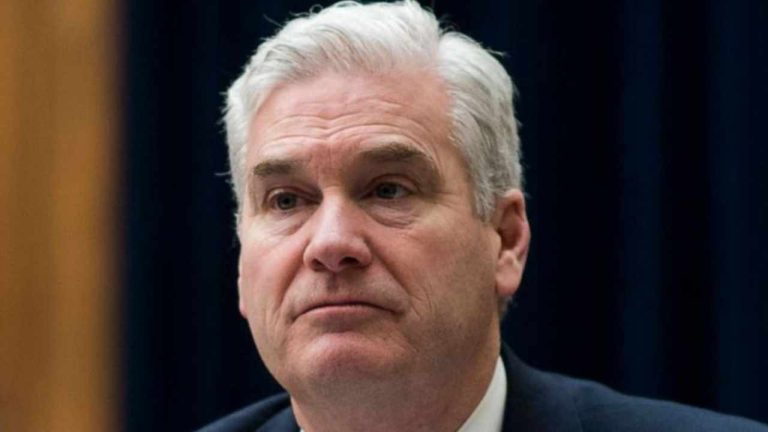 A Fellow at the Carnegie Russia Eurasia Center and former adviser at the Central Bank of Russia has weighed in on the digital ruble, Russia’s central bank digital currency (CBDC), highlighting its potential role in reshaping Russia’s financial landscape amid sanctions. While the digital currency could offer new avenues for trade and reduce reliance on […]
A Fellow at the Carnegie Russia Eurasia Center and former adviser at the Central Bank of Russia has weighed in on the digital ruble, Russia’s central bank digital currency (CBDC), highlighting its potential role in reshaping Russia’s financial landscape amid sanctions. While the digital currency could offer new avenues for trade and reduce reliance on […] South Korean police arrested a man in his 40s for orchestrating a cryptocurrency scam that defrauded 158 investors of 16 billion won ($12 million). Operating from November 2021 to June 2022, he promised an 18% monthly return on investments in a fake cryptocurrency mining business. The scam resulted in individual losses ranging from 1.2 million […]
South Korean police arrested a man in his 40s for orchestrating a cryptocurrency scam that defrauded 158 investors of 16 billion won ($12 million). Operating from November 2021 to June 2022, he promised an 18% monthly return on investments in a fake cryptocurrency mining business. The scam resulted in individual losses ranging from 1.2 million […] Following Telegram founder Pavel Durov’s arrest, Tesla CEO Elon Musk posted the hashtag #FreePavel on his social media platform X. The hashtags #FreePavel and #FreeDurov emerged as supporters protested Durov’s arrest and called for his release. Durov is known for his strong stance on privacy and free speech, often clashing with government authorities over his […]
Following Telegram founder Pavel Durov’s arrest, Tesla CEO Elon Musk posted the hashtag #FreePavel on his social media platform X. The hashtags #FreePavel and #FreeDurov emerged as supporters protested Durov’s arrest and called for his release. Durov is known for his strong stance on privacy and free speech, often clashing with government authorities over his […]

The Chat Control law is aimed at combating child exploitation material, but Meredith Whittaker said it’s just the latest proposed tactic to undermine encryption.
The president of messaging app Signal has slammed a revised European Union proposal that seeks to surveil encrypted chats under “new branding.”
The EU Commission first proposed the Chat Control law in mid-2022, attempting to push through rules that would effectively force messaging apps to create a backdoor to end-to-end encrypted messages.
The EU Parliament committee voted against mass screening encrypted telecommunications in November last year, but a revised draft of the law is now seeking an alternative method of mass scanning — named "upload moderation" to combat online child sexual abuse material.

During an episode of The Joe Rogan Experience, Altman expressed his excitement for Bitcoin and also said he was “super against” CBDCs.
OpenAI CEO Sam Altman has called Bitcoin (BTC) a "super logical" step on the tech tree, which is both free of government control while helping to fight corruption.
"I’m excited about Bitcoin,” Altman told Joe Rogan during an Oct. 6 episode of The Joe Rogan Experience podcast.
“I think this idea that we have a global currency that is outside of the control of any government is a super logical and important step on the tech tree."
The OpenAI boss' wide-ranging interview with Rogan covered his thoughts on Bitcoin as a world reserve currency and his concerns about central bank digital currencies (CBDCs).
Altman, who also serves as founder of Worldcoin, said the shift to a “technologically enabled world,” including Bitcoin, could help reduce corruption.
Creator of ChatGPT, Sam Altman says, “#Bitcoin is a super logical and important step on the technology tree” of humanity. pic.twitter.com/2DGDzxIRrm
— Documenting ₿itcoin (@DocumentingBTC) October 7, 2023
“One of the things that I've observed, obviously many other people too, is corruption is such an incredible hindrance to getting anything done in a society to make it forward progress,” said Altman.
“But in a world where payments, for example, are no longer like bags of cash but done somehow digitally and somebody, even if you're using Bitcoin, can like watch those flows," he said, adding:
“I think that's like a corruption reducing thing."
Meanwhile, Rogan expressed his own optimism for Bitcoin despite skepticism of the wider cryptocurrency industry, saying he believes it can become a “universal viable currency.”
“The real fascinating crypto is Bitcoin. To me, that's the one that I think has the most likely possibility of becoming a universal viable currency. It's limited in the amount that there can be [and] people mine it with their own [computer].”
“That to me is very fascinating. I love the fact that it's been implemented,” Rogan added.
I disagree with Joe Rogan here. #Bitcoin won’t become a “universal, viable currency”.
— Dennis Porter (@Dennis_Porter_) October 7, 2023
It already is universal, viable currency being used by millions of people globally.
pic.twitter.com/RpMIHrQMUg
Altman, however, has been a long supporter of Bitcoin well before the podcast. In a blog post dated 10 years ago, Altman argued that a world transacting in Bitcoin would be more transparent.
“A world where we all transact in Bitcoin would be much more transparent, and financial transparency is great. It’s perhaps the thing that would most reduce corruption,” Altman said.
Meanwhile, both Altman and Rogan said they were “super against” CBDCs and expressed worry about the United States becoming a surveillance state.
Rogan argued that CBDCs could give governments even more control over how people spend their money:
“I'm very worried about central bank digital currency and that being tied to a social credit score. That scares the shit out of me. The push to that is not for the overall good of society, that's for control.”
Related: CBDC frameworks must guard user privacy, monetary freedom — BIS chief
Altman added he hasn’t been impressed with how the U.S. government has treated the cryptocurrency industry recently:
“There's many things that I’m disappointed that the U.S. government has done recently, but the war on crypto, which I think is a like, we can’t give this up, like we’re going to control this and all that. That's the thing that makes me quite sad about the country,” he said.
Magazine: Asia Express: China expands CBDC’s tentacles, Malaysia is HK’s new crypto rival

Explore the IMF’s objectives, governance structure and key functions in promoting global financial stability.
Maintaining stability in the international financial system is essential for sustaining economic growth in a connected global economy. In this context, the International Monetary Fund (IMF) is essential for fostering international monetary cooperation, maintaining exchange rate stability and managing financial crises. This article provides an overview of the IMF and its objectives, governance structure and key functions.
The International Monetary Fund is a global institution with its main office in Washington, D.C. Its 190 member countries represent nearly the entire world. The main objective of the IMF is to promote economic growth and stability around the world by offering its member nations technical assistance, financial support and policy recommendations.
The IMF’s three main goals are as follows:
The IMF’s governance system guarantees that all of its member nations are represented and have equal access to decision-making. The essential components of the IMF consist of:
The IMF does a variety of tasks to achieve its goals, including:
Related: IMF optimism in Central African Republic, despite Bitcoin adoption
The IMF recognizes the potential benefits and risks associated with digital currencies. In its reports and statements, the IMF has highlighted several key considerations regarding digital currencies:
The IMF recognizes that digital currencies, in particular, central bank digital currencies (CBDCs), have the potential to improve financial inclusion by giving unbanked populations safe and convenient access to financial services.
A new IMF post warning against "crypto asset adoption" claims that CBDCs "can improve financial inclusion and lower remittances' costs." Does that ring a bell, anyone?
— JAN3 (@JAN3com) June 22, 2023
Avoid the CBDC trap, choose #Bitcoin instead! pic.twitter.com/emmTRGO4u7
Digital currencies have the potential to bring about technological advancements that could increase the speed and efficiency of financial transactions, cross-border payments and remittances.
The IMF has also emphasized the risks and difficulties related to using digital currency. Consumer protection, financial integrity, Anti-Money Laundering measures, cybersecurity and financial stability are a few of these issues. In order to reduce these risks, the IMF underlines the need for effective regulation and oversight.
The IMF is aware of the cross-border effects of digital currencies, including possible difficulties with regard to monetary policy, exchange rates, capital flows and international cooperation. It emphasizes the value of global coordination and cooperation in resolving these difficulties.
The IMF is intensively researching CBDCs and their possible effects on the world financial system. It highlights the importance of carefully planning and implementing CBDCs to ensure their consistency with goals for monetary and financial stability.
Related: IMF to publish CBDC handbook in response to increasing demand for guidance

CryptoHarlem founder Matt Mitchell says government and corporate surveillance and citizens’ inability to protect against it are great threats to personal security.
Technology can be one’s best friend or, in some cases, their worst enemy. For example, Meta and TikTok seamlessly connect millions of people with loved ones and strangers, and while the platforms are a great resource for finding information and communicating with others, there are valid concerns about violations of users’ privacy and the monetization and possible outright theft of users’ data.
The same can be said for surveillance and security. There is often a gift-and-a-curse style relationship, wherein the exact surveillance tools meant to keep people safe and deter crime are often used to oppress and control citizens or even ignore the criminal acts of those in power.
To explore this contentious topic in greater depth, show hosts Jonathan DeYoung and Ray Salmond invited renowned hacker and activist Matt Mitchell to the most recent episode of The Agenda podcast.

When asked to share some examples of what drives his passion for hacktivism and which threats might be the most immediate for the average person, Mitchell said:
“You exist as a target of surveillance no matter what you do, right? And it might be commercial surveillance, the cookies on your browser, it might be the tracking on your phone. And normally, the incentive is financial gain, right? So, people want to sell your data to an advertiser to learn more about you so they can monetize it. Even the most failed startup is like sell this data, get out of this problem.”
To emphasis the increased danger of the surveillance threat to communities of color in the United States, Mitchell explained:
“Now, if you are a Black person or you're in an historically Black community or a majority Black community, that surveillance includes law enforcement surveillance. It also includes private surveillance. That's commercial surveillance. It might include the housing project you live in or the development community surveillance. And when you put it all together, there's a 4D, like 4K, super-high-res image of your life because you're under so many layers of surveillance that there's almost no space that's actually your private space.”
Mitchell said the very first thing he teaches people is that “surveillance is bad, and we need to stop it.”
When Salmond suggested that security is ultimately designed to keep citizens safe, Mitchell countered with:
“For example, let's say you work as a tech, you have privileged access. So, only you and three other cybersecurity people or data people have access to all the sensitive keys. In the beginning, it's used to stop abuse on the platform, but at the end, you're using it to stalk someone you're romantically interested, right? Because surveillance corrupts you in an insidious way. Kind of like the One Ring.”
Related: Africa: The next hub for Bitcoin, crypto adoption and venture capital?
According to Mitchell:
“The group that wields the surveillance tool is not wielding it upon itself. They're not the ones that are being watched. It is the watcher, not the watchers, that is on the empowerment side of this thing.”
To hear more from Mitchell’s conversation with The Agenda — including his backstory and the revolutionary objectives of CryptoHarlem — listen to the full episode on Cointelegraph’s Podcasts page, Apple Podcasts or Spotify. And don’t forget to check out Cointelegraph’s full lineup of other shows!
The views, thoughts and opinions expressed here are the authors’ alone and do not necessarily reflect or represent the views and opinions of Cointelegraph.
 The U.S. Central Bank has issued an update regarding the Federal Reserve’s Fednow project, which is scheduled to commence in July. The Fed has responded to recent criticism of the Fednow service and asserts that the Fednow payment network is “neither a form of currency nor a step toward eliminating any form of payment, including […]
The U.S. Central Bank has issued an update regarding the Federal Reserve’s Fednow project, which is scheduled to commence in July. The Fed has responded to recent criticism of the Fednow service and asserts that the Fednow payment network is “neither a form of currency nor a step toward eliminating any form of payment, including […]
Daleep Singh argues that crowding out cryptocurrencies by establishing a CBDC in the United States would protect the country's national interests.
The creation of a United States digital dollar would “crowd out” the cryptocurrency ecosystem and protect the national security of the U.S. according to a former top advisor in president Joe Biden’s administration.
Daleep Singh — a former Deputy National Security Advisor for International Economics in the Biden administration — made the comments at a Feb. 28 Senate Banking Committee hearing, suggesting that cryptocurrencies facilitate ransomware attacks and contribute to the evasion of U.S. sanctions.
Singh believes the U.S. government embracing a Central Bank Digital Currency (CBDC) “is the single best step that we could take [to protect national interests] because it would crowd out the ecosystem of crypto.”
Singh frames “crowding out” as a desirable development in his discussion of a CBDC but the phrase is generally used by economists to refer to how investments from governments can drive down or eliminate investments from private firms that could limit job creation and slow economic growth.
In an interview with Cointelegraph in May 2022, Franklin Noll — the president of Consulting firm Noll Historical Consulting — also suggested that CBDCs could crowd out crypto, noting:
“The downside for crypto is that CBDCs will work to crowd out private cryptocurrencies, especially stablecoins focused on retail payment areas. Cryptocurrencies will stay in niches in the payment system where they serve unique functions and provide specialized services.”
While China has implemented its own CBDC, the U.S. is still exploring the potential benefits and risks associated with CBDCs.
Yana Fanusie, the policy lead at the crypto advocacy group Crypto Council for Innovation suggested in a Mar. 1 interview with Bloomberg that China is “leading the way” on CBDC development while the U.S. is “on the sidelines.”
Related: Bank of England has no tech skills to issue CBDC yet: Deputy governor
He added that developing alternative financial rails could spell “trouble” to the U.S. as they affect the “potency” of its power to enforce sanctions.
Others are more critical of the digital dollar plans such as Representative Tom Emmer, who introduced legislation on Feb. 22 prohibiting the Federal Reserve from implementing monetary policy based on a CBDC and issuing a digital dollar directly to individuals.
Emmer is concerned that a CBDC could impact the financial privacy of American citizens, and be developed into a “dangerous surveillance tool.”
The Biden admin wants to create a surveillance-style digital dollar that is NOT:
— Tom Emmer (@GOPMajorityWhip) February 28, 2023
❌Open
❌Permissionless
❌Private
That's why I introduced legislation to prevent unelected bureaucrats from stripping Americans of their right to financial privacy. pic.twitter.com/55e2nfmlJy
 U.S. Congressman Tom Emmer has introduced the Central Bank Digital Currency (CBDC) Anti-Surveillance State Act “to halt efforts of unelected bureaucrats” from “stripping Americans of their right to financial privacy.” The bill also prohibits the Federal Reserve “from issuing a CBDC directly to anyone.” CBDC Anti-Surveillance State Act Introduced U.S. Congressman Tom Emmer (R-MN) announced […]
U.S. Congressman Tom Emmer has introduced the Central Bank Digital Currency (CBDC) Anti-Surveillance State Act “to halt efforts of unelected bureaucrats” from “stripping Americans of their right to financial privacy.” The bill also prohibits the Federal Reserve “from issuing a CBDC directly to anyone.” CBDC Anti-Surveillance State Act Introduced U.S. Congressman Tom Emmer (R-MN) announced […]